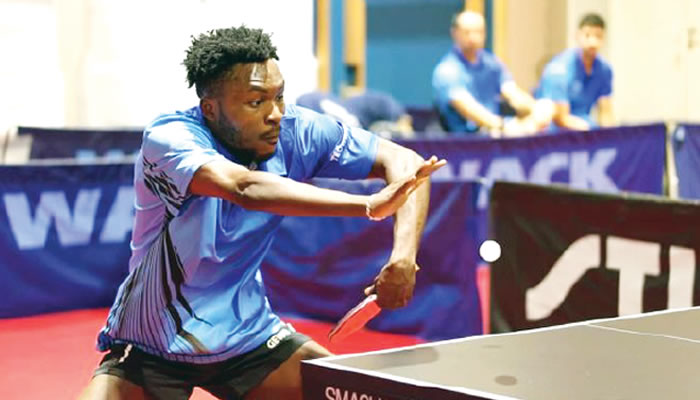Taiwo Mati, a promising Nigerian table tennis player, finds himself at a crossroads in his burgeoning international career. Despite his dedication and evident potential, a string of recent losses at various World Table Tennis (WTT) events has highlighted a significant obstacle hindering his progress: financial constraints. Mati’s recent performance at the 2025 WTT Contender Tunis exemplifies this challenge. He exited the singles competition after losing both group matches, first to Malta’s Kim Taehyun and then to India’s Snehit Suravajjula. His participation in the men’s doubles event, partnering with Taehyun, also ended prematurely with a round of 16 defeat against a German pair. While these results paint a picture of struggle, Mati’s perspective on his situation reveals a deeper understanding of the factors at play.
Mati’s assessment of his recent setbacks transcends a simple analysis of technical shortcomings. While he acknowledges the need for continuous improvement in his game, he identifies the lack of consistent participation in high-level WTT events as the primary impediment to his development. This absence, driven by the lack of financial support and sponsorships, deprives him of crucial exposure to the demanding environment of international competition. Mati believes that regular participation in these events is essential for acclimatizing to the pressure, gaining valuable experience, and building the confidence necessary to compete at the highest level. He emphasizes that increased exposure to this challenging environment would foster a greater sense of comfort and self-assurance, ultimately leading to improved performance.
The young athlete’s recent performance history underscores the impact of limited exposure to international competition. Between October 2024 and April 2025, Mati participated in three major WTT singles events: Cagliari, Muscat, and Tunis. Despite a promising start in Cagliari with a victory over Switzerland’s Simon Boccard, he suffered a string of losses in the subsequent matches and tournaments. In Muscat, three consecutive defeats followed, including a particularly close match against Lam Siu Hang where he surrendered a two-game lead. The Tunis event saw him struggle against both Taehyun and Suravajjula, highlighting the gap between his current level and the consistently high standard of international competition. The statistical analysis of these matches reveals a pattern of being outscored and struggling with return points, indicating areas needing focused improvement.
Despite the disheartening results, Mati maintains a remarkably positive and resilient outlook. He views these setbacks not as indicators of failure, but as opportunities for growth and learning. He emphasizes his mental fortitude, stating his preparedness for both positive and negative outcomes and his unwavering resolve to face challenges head-on. This mental resilience is crucial for navigating the demanding and often unpredictable landscape of professional sports. Mati’s ability to maintain a balanced perspective and focus on long-term development rather than being discouraged by short-term setbacks is a testament to his maturity and dedication to his craft.
Mati recognizes the constant need for improvement, both physically and mentally. He understands that table tennis, at the elite level, demands a holistic approach to development. He acknowledges that his game still requires refinement and that physical conditioning is just as important as tactical awareness. This understanding of the multifaceted nature of his sport demonstrates a mature approach to development, recognizing that continuous improvement in all areas is essential for reaching his full potential. His plan to return to France and focus on club league matches after the Tunis event highlights his commitment to utilizing every available opportunity to hone his skills and gain valuable competitive experience.
In conclusion, Taiwo Mati’s story highlights the pervasive challenge faced by many aspiring athletes in developing countries: the lack of adequate financial support to pursue their dreams on the international stage. While talent and dedication are essential ingredients for success, they often prove insufficient without the necessary resources to access high-level training and competition. Mati’s case underscores the crucial role of sponsorships and funding in enabling athletes to reach their full potential. His unwavering commitment to his sport, coupled with his positive attitude and willingness to learn, positions him well for future success. However, realizing his full potential hinges on securing the financial backing required to bridge the gap between his current standing and the demands of elite international table tennis. His story serves as a call for greater investment in promising young athletes, recognizing their potential to bring honor and recognition to their nations while pursuing their personal aspirations.














